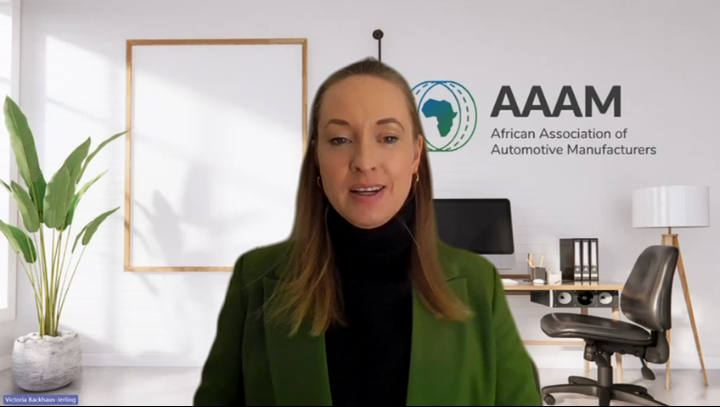The African Association of Automotive Manufacturers (AAAM), has stated giving legal backing to the Nigeria Auto Policy is key to rejuvenating the sector.
Chief Executive Officer, AAAM, Victoria Backhaus-Jerling, stated this in Lagos last week at the second Nigeria Auto Industry Summit organized by the Nigeria Auto Journalists Association in collaboration with the National Automotive Design and development Council (NADDC).
In a goodwill message, Backhaus-Jerling said without giving the nation’s auto policy a legal backing, the sector would remain vulnerable to unchecked used imports, and Nigeria risks missing out on the opportunities industrialization can bring.
She noted that AAM remains a committed partner to Nigeria.
“We have seen what’s possible in countries like Morocco, Egypt, Ghana and South Africa and we believe Nigeria can go even further. Political will and decisive action will be the game changers.”
She described Africa as the world’s last automotive frontier, future of which and Nigeria holds a powerful place.
“With its scale, talent and entrepreneurial spirit,” she pointed out, “Nigeria has all the right ingredients to lead. What’s needed now is policy certainty to match that potential.”
According to Backhaus-Jerling, AAAM works with governments and partners across the continent “to enable policies and auto programmes, attract investment and unlock regional value chains under the African Continental Free Trade Area (AfCFTA).”
In his remarks, Corps Marshal, Federal Road Safety Corps (FRSC), Shehu Mohammed, said the theme for this year’s summit, “Nigeria First: Content as Catalyst for Automotive Economy,” is timely and aligns deeply with national aspirations for industrialization, job creation, and sustainable development.
Represented by Zonal Commanding Officer, RS2HQ, Lagos, Ogun, Ann Oladayo, the corps Marshall said, as a lead agency in road safety and traffic management, the FRSC recognises the critical interdependence between road safety, automotive standards, and local content development.
He noted: “FRSC remains committed to collaborating with all partners in shaping policies that encourage safer vehicle designs, support innovation in transport technologies, and promote ethical practices within the automotive value chain.”
Earlier in his remarks, NAJA Chairman, Theodore Opara, issued a resounding call for a renewed and strategic push toward the development of local content in the country’s automotive sector.
Reflecting on the significance of the summit, Opara described it as a vital platform for critical stakeholders to engage in robust dialogue and jointly create actionable roadmaps for industrial development.
He noted that the outcomes of the previous summit had been compiled into a communiqué and submitted to relevant government institutions including the Ministry of Industry, the National Assembly, and the Presidency for further action.
Speaking on the current state of the industry, the NAJA Chairman bemoaned the sector’s continued overreliance on imports for everything from fully built vehicles to basic auto components like tyres, brake pads, and batteries.













